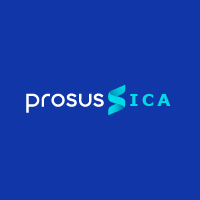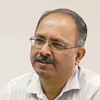
Prosus SICA
View Brand PublisherAssistive technologies to “leave no one behind”
‘Leave no one behind’ is the transformative promise of the UN’s Agenda for Sustainable Development. At its heart is social inclusion, specifically for the one billion people around the world with disabilities.
What will it take to achieve this ambition by the target date of 2030? The consensus among stakeholders from multilateral advisers such as the WHO to on-the-ground practitioners and service providers is simple: universal access to assistive technologies.
Assistive products help people live healthy, productive, independent, and dignified lives, to participate in education, get a job and participate in civic life. Yet only a tenth of the people who need assistive products have access to them.

L: Dr. Patanjali Dev Nayar , R: Dr. N.S. Senthil Kumar
“It is now critical to close the gap or confront an altogether unmanageable problem with dire social consequences,” says Dr Patanjali Dev Nayar, Regional Adviser, Disability, Injury Prevention and Rehabilitation, WHO/SEARO.
What is necessary, he says, is not just better access to assistive technologies, but a comprehensive and multi-sectoral approach that fulfils all safety and quality standards established by national and international regulations.
Encouraging assistive technology innovation
With this in mind, Prosus and its partners - Invest India, the country’s national investment promotion and facilitation agency, Social Alpha, an initiative supported by Tata Trusts - launched the Prosus Social Impact Challenge for Accessibility (SICA). It is a bold contest to encourage entrepreneurship in assistive technologies. Launched in August 2020, the winners will be announced in early December. They will receive a total of Rs 1,65,00,000 over three years to bring their ideas to fruition, with mentoring, product development and marketing.
Dr Nayar speaks with authority. With more than 30 years’ experience in the public sector as an ophthalmologist, and as an advocate for the rights of the disabled, he argues for nothing less than a systemic change. “When distribution of products was considered philanthropic, the approach was ad-hoc, unscientific and deprived people of dignity. Without high-quality, affordable assistive products, people suffer exclusion, are at risk of isolation and poverty, and may become a burden to their family and society. Ensuring access, then, is about securing a fundamental human right.”
This is the premise on which the World Health Organization (WHO) launched its Priority Assistive Products List (APL) - a list of 50 essential gadgets to maintain or improve an individual’s functioning, and which must be available at an affordable price.
Sehraj Singh, Director, Public policy and Corporate affairs, Procus Group, agrees. “Our decision to support the development of assistive tech in India goes beyond altruism. We believe that building an economic case for investments in assistive technologies will help create better products for people with disabilities. Indian entrepreneurs are among the best in the world, and we want to help them lead the way.”
Indian developers have only recently begun to customise technologies to specific user requirements; yet, this standard has been embedded in the ethical code of the Bengaluru-based Association of People with Disability (APD) since it began in 1959. APD runs extensive programmes in rural and urban Karnataka to enable, equip and empower children and adults who have a range of disabilities including locomotor, spinal cord injury, speech and hearing, cerebral palsy, and to some extent, mental issues.
Dr. N. S. Senthil Kumar, Chief Innovation Officer, APD India, acknowledges the challenges the organisation faces in last-mile delivery of assistive services, but seldom seems deterred. “We started customising prosthetics 38 years ago, when prosthetics weren’t even available in India. Through our frequent camps in the interiors of north Karnataka, we deliver more than 3,000 tailor-made products to the large percentage of people who live in rural areas and are unable to afford assistive products. At these camps, we measure, deliver and fit the final products, and take feedback. We run the camps at a huge organisational cost, but at least we help people avoid further complications through awkward devices.”
Dr Kumar, jury member for Prosus SICA, agrees that a combination of “engineering and design with genuine empathy” is an impactful and sustainable approach.
“Even if you have funding and a product, [always] conduct basic lab testing and quality control before testing on real people. Value their time, their health, and their financial constraints.” Then, he adds, test the reliability and validate your product against a golden standard. “False validation will only confirm the developer’s bias.”
Dr. Nayar, also a jury member for Prosus SICA, welcomes the contest, which he believes brings complementary disciplines from the corporate world. Prosus SICA, for example, offers WHO the opportunity to collaborate with private entities that are both passionate and ethical. But Dr. Nayar still holds firm to the values that have worked for him so far.
“You must have passion, a plan, and innovation in that order. See yourselves as citizens first and then as innovators.”
To find out more about Prosus SICA, participants can log onto the Startup India Hub.








